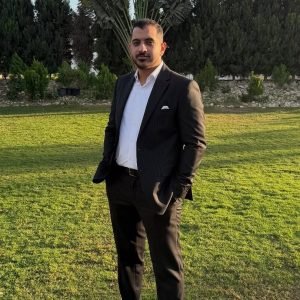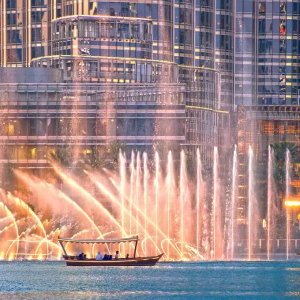Gold and Guns : In the shadows of Sudan’s brutal conflict lies a story that exemplifies the dangerous intersection of war, wealth, and power. At the heart of this tale is a militia leader whose rise from battlefield commander to a wealthy warlord was paved with gold—literally. Exclusive investigations have revealed how one of Sudan’s most notorious militia chiefs enriched himself through a vast and often illicit gold trade, fueling his operations while the nation plunged into chaos.
This revelation shines a harsh light on how natural resources, particularly gold, have become both a weapon and a currency in Sudan’s deepening conflict. As civilians starve, cities are razed, and millions flee their homes, warlords are minting fortunes—prolonging the suffering for profit.
The Man Behind the Empire
At the center of the gold-for-guns narrative is the leader of the Rapid Support Forces (RSF), a powerful paramilitary organization originally formed from the infamous Janjaweed militias. While his name commands fear across war-torn Darfur and the capital Khartoum, his business dealings have remained cloaked in secrecy—until now.

According to confidential documents, customs reports, and insider testimony, this militia leader has used his political connections and military dominance to control some of Sudan’s most lucrative gold mines, especially in Darfur and the Nile Valley. With armed fighters providing security and intimidation, his companies reportedly gained access to mining rights and supply chains, creating a financial empire that spans Sudan and reaches into the United Arab Emirates, Russia, and beyond.
Gold Mines and Blood Trails
Gold is Sudan’s top export and a vital source of foreign currency. In recent years, the metal has accounted for over 40% of the country’s exports. Yet much of it is mined in informal or illegal operations far from government oversight. These remote areas are often controlled by armed groups, who levy taxes, demand protection fees, or operate the mines directly.

In Darfur, where the RSF has a strong presence, gold mining has long been intertwined with violence. Witnesses report how villagers were forcibly evicted from ancestral lands, how miners were forced to work under militia supervision, and how any resistance was met with brutal crackdowns.
Satellite imagery and field reports suggest that many of these mines operate with little regard for environmental laws or worker safety. Mercury contamination, unsafe shafts, and child labor are reportedly common. Yet the gold continues to flow—discreetly and efficiently—into the global market.
A Global Supply Chain of Secrecy
From Sudan’s remote goldfields, the precious metal is transported to refineries and smuggling hubs in the Middle East. The United Arab Emirates, particularly Dubai, is a major destination. Although the UAE has laws in place to prevent the trade of conflict gold, enforcement has lagged. Investigations suggest that some Sudanese gold arrives without formal documentation or with forged certificates, often routed through middlemen to obscure its origin.
Once refined and sold, the gold is indistinguishable from legally sourced metal. It ends up in jewelry, tech products, and international banks—consumers often unaware they’re holding gold tainted by war crimes.
Analysts estimate that hundreds of millions of dollars have been funneled through this trade, providing the RSF with funds to buy weapons, pay fighters, and expand their political influence.
Weapons, Mercenaries, and Foreign Ties
The wealth generated from gold has not remained idle. Reports suggest that the RSF has used its funds to purchase advanced weapons, hire foreign mercenaries, and establish sophisticated propaganda networks. There are allegations of arms deals facilitated through foreign actors, including Russian private military companies with interests in African resources.
This financial independence has given the RSF a dangerous degree of autonomy. Unlike the Sudanese Armed Forces (SAF), which rely on the formal state apparatus and shrinking government budgets, the RSF has become self-sufficient—running parallel governance structures, military operations, and business networks.
Experts warn that this economic base not only fuels the conflict but makes any future peace deal more difficult. As long as war is profitable, there is little incentive for those in power to lay down arms.
Civilian Toll: The Cost of a Militia’s Fortune
While one man builds wealth from gold, millions of Sudanese citizens suffer the consequences. In areas around militia-controlled mines, access to clean water, healthcare, and education has deteriorated. Displacement and land grabs have robbed entire communities of their livelihoods.
In Khartoum and beyond, RSF forces are accused of committing atrocities—torture, extrajudicial killings, and sexual violence. Human rights groups believe the influx of gold revenue has allowed the militia to expand these operations with impunity.
“There is no accountability when money flows unchecked,” said a human rights investigator who requested anonymity. “Gold has become a shield and a sword—it protects the perpetrators and empowers their brutality.”
International Response: Too Little, Too Late?
So far, the international community has struggled to curtail the trade of conflict gold. Sanctions on individuals and entities linked to the RSF exist but are limited. Enforcement mechanisms are weak, and global demand for gold remains high.
The United Nations and African Union have both called for tighter controls on Sudan’s mining sector and greater scrutiny of the gold supply chain. However, efforts to trace and verify gold origins are often blocked by opaque corporate structures and the reluctance of governments to challenge powerful economic interests.
Calls are growing for consumer countries—particularly in the West and the Gulf—to require due diligence from importers and refiners. Some advocacy groups are urging major tech and jewelry brands to audit their supply chains and divest from gold of unverified origin.

The Bigger Picture: Resource Wars in Modern Africa
Sudan is not alone. Across Africa, armed groups and warlords have exploited natural resources to fuel conflicts—from diamonds in Sierra Leone to cobalt in the Democratic Republic of Congo. The Sudan case adds a chilling chapter to this trend, showing how resource control can transform militias into state-like actors with regional and global reach.
What makes Sudan’s case especially concerning is the scale and sophistication of the operation. With deep-pocketed allies, international partners, and financial clout, the RSF’s gold empire is no longer just a local issue—it’s a transnational challenge.
Conclusion: Gold’s Deadly Price
The story of a Sudanese militia leader growing rich off gold is not just about personal greed—it’s about a system that enables exploitation in the shadows. As conflict rages and civilians die, warlords thrive, protected by global indifference and financial loopholes.
Exposing this network is only the first step. Real change will require action—from governments, corporations, and consumers alike. Until then, each bar of untraced gold may carry more than shimmer; it may carry the weight of war.
Do follow Uae stories for more Updates
ADNOC’s XRG Expands Global Footprint with Strategic Stake in Turkmenistan Gas Block












